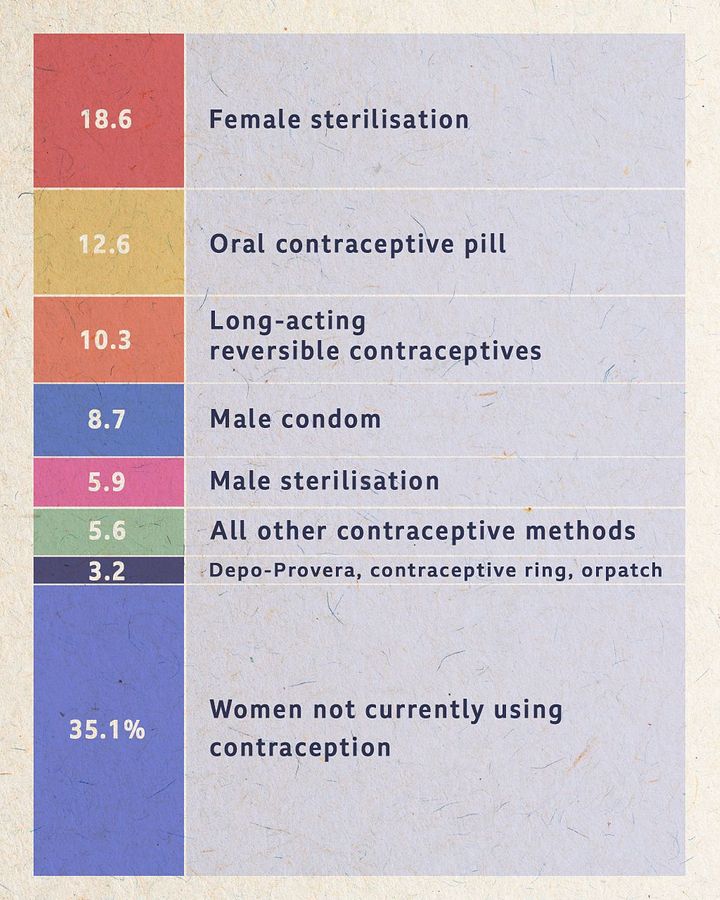
Vasectomy: The US men embracing permanent birth control
In the US, some young men report that legal changes to reproductive rights have catalysed them to opt for vasectomies.

By Kate Morgan
26th October 2022
In the US, some young men report that legal changes to reproductive rights have catalysed them to opt for vasectomies.
On a Friday in January, Lyon Lenk will go to his urologist’s office in Kansas City, Missouri, US. He’ll be given a local anaesthetic, and the doctor will cut a tiny incision in Lenk’s scrotum, locate his vas deferens – the tube that carries sperm through the penis – cut it, and seal the ends. The incision will be closed, and Lenk will go home, take some over-the-counter painkillers and as long as there are no complications, be free from discomfort within a week or so.
Lenk, 35, and his partner have no children, and want to keep it that way. When the United States Supreme Court ruled in Dobbs v Jackson Women's Health Organization that there is no constitutional right to an abortion – overturning Roe v Wade, the decision that protected abortion rights since 1973 – he scheduled a vasectomy.
“I think like a lot of people in my situation, this is something that we were probably on the fence about before Roe v Wade got overturned,” says Lenk. “But this is the only option to keep my partner safe at this juncture, because I live in Missouri. And Missouri had one of the ‘trigger laws’ that went into effect, [criminalising abortion] right as it got overturned. It just got really scary and really real all at once.”
More young men are inquiring about and getting vasectomies. It’s a trend that’s been observed informally in several countries, and has particularly spiked in the United States since the Supreme Court’s decision. Google Trends tracked a huge uptick in US searches for 'vasectomy', along with the related search terms “Roe” and “abortion”; search volume was even higher in places with trigger laws. A report from telehealth research company Innerbody Research showed searches for “where can I get a vasectomy” increased by 850% in the days after the news, with the biggest jumps in conservative states Texas and Florida. One practice in Florida told CBS News that the number of child-free men getting vasectomies under the age of 30 had doubled since the ruling. Urologists in New York, California, Iowa and elsewhere have reported similar upticks.
It’s a norm-bucking trend. Responsibility for birth control, even for long-term couples, has long fallen disproportionately to women; female sterilisation, oral contraceptives, IUDs and other options for women remain the most common forms of birth control in the US. But with more Americans focusing on contraceptive decisions in the wake of the Dobbs ruling, the rise in interest around vasectomies may signal a shift towards men taking more responsibility for their own reproduction – or lack thereof.

35-year-old Lyon Lenk, based in Missouri, will undergo the procedure in January 2023 (Image: Courtesy of Lyon Lenk)
‘Fear is a real factor’
In many countries, vasectomy has been a niche practice. Rates are especially low in developing nations, with average prevalence (usage by women aged 15 to 49 in relationships as a form of contraception) between 0% and 2%. It’s more common in other countries: UN figures from 2015 show that in Canada and the UK, prevalence stood at 21.7% and 21%, respectively. In the US, the UN figure was 10.8%.
While vasectomies in American men between 18 and 45 were on the decline between 2002 and 2017, studies have documented some notable spikes, especially during the 2007 to 2009 Great Recession. “A 34% increase in vasectomy utilization during the Great Recession … was most strongly correlated with the rise in unemployment rate,” wrote researchers in the Department of Urology at Stanford University.
Economic conditions are not the only factor in vasectomy upticks. Concerns linked to climate and overpopulation have led to a desire, for some, to limit their family size or have no children. In Australia, where vasectomy rates are relatively high compared to some developed nations, doctors are reporting an increase in men younger than 30 seeking the procedure. Between 2020 and 2021, “there’s been close to a 20% increase in the number of childless men under 30 requesting vasectomies”, a doctor in Australia told SBS News. There are also anecdotal reports that vasectomies among young men are becoming more prevalent in the UK and even in China, where sterilisation remains culturally taboo.
In the US, says Alexander Pastuszak, assistant professor in the division of urology surgery at the University of Utah, the most common reason for seeking a vasectomy used to be “my wife asked me to”. But since the Supreme Court’s decision, he says, more men seem to be taking ownership of their reproductive options, as women’s options become more limited. “Particularly in the states where the anti-abortion laws have really been reinstated, my colleagues have definitely seen an uptick in the number of men coming to see them for vasectomy,” says Pastuszak. “There’s a sense that, you know, we can't just have sex anymore on our terms.”
Stanton Honig, professor of clinical urology and division chief of reproductive and sexual medicine at Yale School of Medicine, also believes the political climate is a driving factor in the rising number of vasectomies. “We did see an initial spike in quotes for vasectomy with the overturn of Roe v Wade,” he says. “Many urologists are now backed up months to do vasectomies.”We did see an initial spike in quotes for vasectomy with the overturn of Roe v Wade. Many urologists are now backed up months to do vasectomies – Stanton Honig
The flurry of calls has died down a bit in his office, says Honig, though his calendar is still full. “But in the red states – I have a friend in Kansas who has told me that this has continued to rise. It’s the same in Wisconsin. I think there is still fear – that is a real factor. I don't think it's something that people weren't thinking about before, but in talking to patients, it’s clear this kind of pushed them to the edge.”
Keith Laue, a 23-year-old content creator from Austin, Texas, US, says he had the procedure done because he believes that women shouldn’t have to shoulder the burden of birth control alone. “Texas has been less than kind to women's reproductive rights, to put it lightly,” he says. Laue and his partner have a three-year-old daughter, and are sure they don’t want any more children. After talking to his partner about her “really rough” experience with contraceptives, Laue says it was an easy decision that he should be the one to take responsibility for the couple’s birth control.
Laue made the decision to get a vasectomy last year, after Texas passed the “heartbeat bill” banning abortion after six weeks. “I put off actually booking the appointment,” he says, “but when the Roe decision was leaked, that was when I was like ‘Oh, I've got to actually do this now’. That's when I scheduled my appointment.”
Honig suggests fear that other forms of birth control could be at risk from subsequent reproductive rights legislation could be feeding into the US rise in vasectomies. “You know, it’s a slippery slope,” says Honig. “Especially in states like Ohio, Indiana, Missouri where, once Roe v Wade was overturned, they went back to abortion not being legal, there was a fear that perhaps soon they couldn't get any type of family planning.”
That eventuality, says Lenk, “crossed my mind pretty immediately”. It’s part of what motivated him to schedule a vasectomy while he still could. To date, he says, responsibility for contraception has fallen on his partner, which has come with challenges. “She struggles with hormonal birth control,” he says. “It causes a whole bunch of side effects, but she still takes it. It interferes with her moods, and other medications that she takes, and IUDs are not ideal for her either.” Sparing his partner the discomfort of these options was another motivator for Lenk.

Percent distribution of women aged 15–49, by current contraceptive status: United States, 2015–2017 (Credit: CDC based on NCHS, National Survey of Family Growth, 2015–2017)
Meaningful shift or short-term spike?
Despite the apparent advantages of the procedure, the number of men having vasectomies has traditionally been low in the US, largely because of the accepted norm that contraception is women’s responsibility, says Krystale Littlejohn, an associate professor of sociology at the University of Oregon. She cautions that even this recent increase must be put into context.



 ) and already have a 5 yr old. I’m thinking heavy about getting that cut myself wit the way these hoes moving out here these days lol
) and already have a 5 yr old. I’m thinking heavy about getting that cut myself wit the way these hoes moving out here these days lol